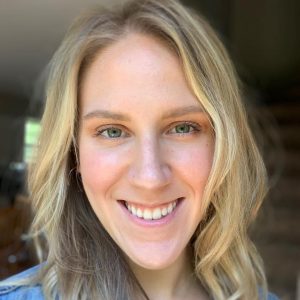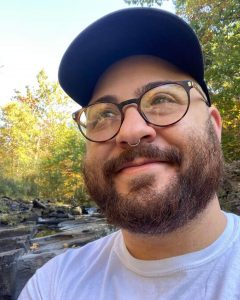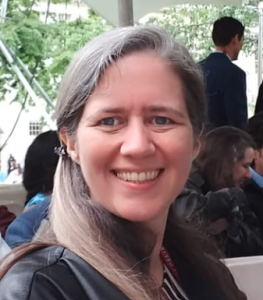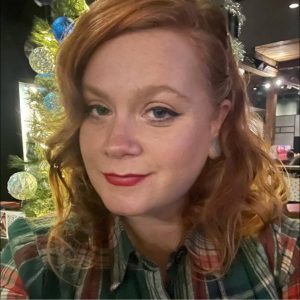
Antonio and I arrived in Philadelphia on August 5, 2014. I’d driven the entire two-day trip from Georgia because he didn’t have a US driver’s license yet, and I was worried if he got pulled over the consequences might be death or deportation. Me, on the other hand, they’d probably just wave on. We made the trip in a new Toyota Prius, which I bought from a salesman who had been reluctant to sell me a car over the phone. “But don’t you want to come by and see it?” he’d asked.
“I live in Oaxaca,” I said, trying to explain my situation.
“Oaxaca. Where’s that?” he interrupted.
“In Mexico…it’s, I just don’t have time to go back to Georgia just to buy a car,” I finished.
“Well, do you know which car you want?” he asked.
No negotiating. I’d already viewed every Prius for sale on Toyota’s website, and I knew which one was the cheapest. “The Prius Hybrid, the silver one because it’s $5,000 less than the others.”
“All righty, how’d you like to make the down payment?”
I read the salesman my credit card number over the phone. For the next few months, I gave no more thought to it until I needed to drive it off the lot. Instead, I focused on Antonio’s US residency paperwork and finding a place to live.
In our new apartment, also rented sight unseen, we plopped down our four duffel bags, our only worldly possessions, and looked around. It wasn’t the first time in my 34 years I’d start over from nothing, but I hoped it’d be the last. We’d ended up there because the owner was the only landlord who’d rent to us without having me sign the lease in person. Of the twenty or so others I called, only he understood the logistical constraints of our situation. The others thought I’d crafted an ingenious scam by transferring an entire month’s deposit and the first and last month’s rent into their bank account.
In anticipation of our arrival, I’d ordered a mattress online, but we’d missed its delivery. As we scurried across town in our Prius, Antonio asked how we could possibly pick it up in such a small car—living in Mexico had caused us to miss the foam mattress revolution. Back in the apartment, after releasing this squishy item from its packaging, in hopes it would become a mattress, we headed to Walmart. Filling two carts with sheets, pillows, toilet paper, a frying pan, and a spatula—life’s essential items—the total rang into the hundreds of dollars. I gulped, counting the days until my first paycheck arrived. Unfortunately, the cashier made an error and could not check us out. Oddly frustrated with us for buying too much stuff, she made us move everything to a different register and wait as she hastily rescanned every item. Exhausted, I rolled my eyes at Antonio and gave a grimaced grin to the cashier to avoid another “error.”
Until I moved to Philadelphia, I never understood how a TV show could be made about parking, only parking. That evening, standing on the sidewalk in front of our apartment, staring at the numerous street signs, I tried to make sense of the parking rules. Now, I can identify non-Philadelphians by how long they stand on the sidewalk staring up at a parking sign. Between Googling and staring, I concluded that we’d need a residential parking pass to leave our car indefinitely on the street in front of the house, which could only be attained in person at the Philadelphia Parking Authority or what all Philadelphians call the PPA.
“You can’t get a residential parking pass for a car plated in Georgia. You’ll need new Pennsylvania plates,” the woman behind plexiglass window #4 explained.
While my heart sank into a dark place, I held close to my carefully copied lease and insurance card, which had taken me over an hour to print that morning. “Okay, how can I do that?” I answered with a high voice, raised eyebrows, and no sudden movements.
“At PennDOT or one of their licensed agents,” she said just before yelling, “Next!” to the person behind me.
I nodded and left, wounded but not defeated, wondering if PennDOT was the equivalent of the DMV. Using the bad Comcast free internet at our apartment, I realized I’d also need a Pennsylvania driver’s license before transferring the title to Pennsylvania.
My wherewithal for dealing with government agencies waned. I was still traumatized by my interactions with the USCIS for Antonio’s temporary residency, which had included an across-the-country trip to Ciudad Juárez, thousands of dollars in application fees, and hours of translating our private Facebook messages from Spanish to English by hand to prove the authenticity of our relationship. Everyone told me it’d take years to get his residency. Hire a lawyer, someone had said, it’s probably only $5,000. Nearly all the money we had. I did the paperwork myself. I pored over every entry about Mexicans applying for US residency on visajourney.com. I repeatedly read the form instructions on the USCIS website to ensure I didn’t miss something and cause us to be separated by national borders. Less than a year later, Antonio’s immigrant entrance package arrived at Oaxaca’s DHL office with DO NOT OPEN printed outside. We were to carry it to the airport to show he had permission to board the plane. After landing in Atlanta, we’d hand it to the immigration officer, allowing Antonio legal entry into the United States of America.
For the next week, trying to jump through the tag, license, and parking pass hoops in the Philadelphia Blackhole of Parking, Antonio and I took turns moving the car every two hours, perpendicular to the prior parking space, all around the neighborhood. At first, we stayed up until midnight, when the metered parking ended, and woke at 7:00 AM, when the metered parking began, to do our last and first park of the day. Then, we figured out that if you parked at 10:00 PM, your two hours ran out at midnight, and the unmetered parking began, and if you were parked in a metered spot at 7:00 AM, then your two hours also began, giving you until 9:00 AM. All of this was confounded by our inability to parallel park. I grew up in the country and Antonio grew up without a car, so we’d never needed or desired to learn this life skill.
Several years before moving to Philadelphia, when Antonio and I were dating and I was living in Georgia, I visited him in Villahermosa, Tabasco, where he was an architect on an airport redesign contract. When I arrived, he drove me to his domicile—the word I’ll use for it—a concrete room with glassless windows, a curtain for a bathroom door, and an inflatable mattress, which no longer inflated, for a bed. “I’m not sleeping here,” I said, and we headed for the cheapest hotel in the city.
One afternoon during that first week in Philly, Antonio said he was giving up and would just move back to Mexico because it was easier to survive there than find parking in Philadelphia. I somewhat agreed. But I couldn’t leave. I had nowhere else to go. Nearly all my money had been put into the apartment. And my job at Rowan University started in three weeks, our only source of income. Besides, I never give up easily and wasn’t about to let the PPA take me down. We had to try and make it. And if he left the US now, he’d be abandoning his temporary US residency. In a way, the day we got our residential parking pass saved our marriage.
Over the next two weeks, we’d get a kitchen table from Ikea, a TV from Best Buy, and a yellow dresser from a guy with a broken leg selling antiques on Craigslist. All items that somehow we—which really means Antonio—got into the trunk of the Prius. But I just couldn’t bring myself to buy a couch. Somehow, somewhere between Oaxaca and Philadelphia, my heart had set itself on a purple couch. It’s ridiculous. Who buys a car without having driven it? And rents an apartment without having seen it? But won’t accept anything but the perfect purple couch?
Me.
The only time I’d ever bought a new couch in my adult life was when I moved to Oaxaca, and it had been big, fluffy, and a lovely burnt orange color. I hated selling it when we moved to the States. All the other couches in my adulthood had been hand-me-downs from recently deceased relatives, smelling of mothballs, or cheap finds on Craigslist, smelling of the unidentifiable. The heart wants what the heart wants, and mine wanted a new purple couch. On my laptop, trying a variety of synonyms for purple – lavender, violet, and plum, weeks passed as I searched the internet for the perfect couch. The results were either out of my price range or looked like they belonged in an ornate palace, so I resorted to foraging the nearby furniture stores.
Meanwhile, Antonio, the Mexican MacGyver, constructed a couch-like object from the box the foam mattress had come in. He saves everything, always telling me that what I perceive as garbage is still useful. But even Antonio, the man who can sleep anywhere, tired of sitting on our make-shift furniture and insisted I choose a couch or he would pick one out himself. After another unsuccessful trip to Ikea, we decided to check out the furniture store next door, Raymour & Flanigan. Greeted immediately in Spanish by the salesman, who I later found out was Puerto Rican, he painstakingly showed us nearly every couch in the warehouse and offered a financing option of 0% interest for 12 months. We tried to translate “ottoman” to Spanish, thinking the online translator’s suggestion of “otomano” just couldn’t be right. After looking for more than an hour at couches that were not any shade of purple, I thought all hope was lost as we headed to the exit. Our new salesman hung his head, and I, feeling guilty for not buying anything, confessed my heart’s desire, “It’s just…es solo que…quiero un sofá morado.”
“A purple one?” he replied, “Come with me.”
Slinking between all the living room setups, we arrived at a little room on the side of the warehouse. “Like this one?” he asked, “It’s the last one we have.”
A velvety, dark purple, there was my couch, as if it had been waiting for me. A dozen signatures later, my purple couch would be delivered in just a few days. Thinking back, my irrational desire to only accept the perfect purple couch seemed to be a small refusal to accept whatever life would give me. It was my way of exerting a little agency upon a world that wouldn’t let me park my car.
Parking would never be easy in Philly. Over the next couple of years, the PPA towed my car numerous times, once from right outside my door. Gazing up and down our sidewalk, the street was empty of cars as far as I could see. An oddity in Philadelphia, I thought the rapture had happened, and everyone had taken their cars with them. Knowing there was no way God would have left me behind, I called the PPA, again. They’d towed it, they said, and it should be within a five-block radius of where it was initially parked. Antonio took one key, I took the other, and we started in different directions. Holding the keys over our heads and as far into the street as possible, we walked our neighborhood, repeatedly clicking the lock/unlock button and listening for our car’s beeped response.
Two years later, when I was nearly eight months pregnant, we’d bought a rowhome in East Passyunk. In the smallest U-Haul available, we moved our purple couch and the few other things we had accumulated, less than three miles across the city, to our new home, just a little bit bigger than our apartment. Antonio removed the front door to get the purple couch into the house. Then he couldn’t get the door back onto the frame without more tools, so that night, we pushed our purple couch up against the front door to hold it in place to protect us from the outside world. As my belly expanded beyond what I thought humanly possible, I could no longer sleep on our mattress, so the purple couch became my bed. Propped up with nearly every pillow in the house, I’d tuck a heating pad under my back each night, hoping for relief from painful sciatica burning down my legs.
As I write, people walk north toward the United States. They, too, carry all they have with them. A few might find a new home in a place they’ve never seen before. Their experience isn’t a new one, and neither is ours. Humans have been moving for as long as there have been humans, even before we were humans. Sometimes we move because we want to. Sometimes because we have to. And it’s always been hard. I count ourselves lucky, blessed, and privileged to have found some parking, a purple couch, and a home in Philadelphia. I wish the same for everyone, everywhere.
Our baby turns seven soon. He loves to sit in Dickinson Square Park, eating chocolate ice cream with sprinkles in a cone that he got from the laundromat, which, I swear, is the best chocolate ice cream in the city. Turns out that August 5, 2014, would be the last time we’d arrive at a home without having seen it with almost no material possessions to our name. When we bought our home in East Passyunk, I told the real estate agent we didn’t have enough stuff to fill a basement. Now it’s full of toys my son won’t let me give away, mismatched tools Antonio refuses to organize, and the mattress we picked up in a Prius. We upgraded the car to a RAV4, another funny story, and my son cried as the new owner drove our Prius away. Despite the residential parking pass, we still join the war of Philadelphia parking after 5:00 PM.
Nearly ten years have passed since that August day we arrived in Philadelphia, and the arms of my purple couch are worn and turning a light lavender. I wonder how long I’ll wait to replace it. Will it have to be purple again? My heart doesn’t yet know. But I did just Google purple couch — and I don’t like any of them.
Stephanie Abraham is a professor of education at Rowan University who dreams of growing up to be a creative nonfiction writer. She writes about her childhood in Georgia, working as an elementary school teacher, learning Spanish as an adult, falling in love in Mexico, and finally finding a home and starting a family in Philadelphia. She’s published in various academic outlets. Still, most proudly, her writing has found a home in The AutoEthnographer: A Literacy & Arts Magazine, Five Minutes, and The Font: A Literary Journal for Language Teachers.








